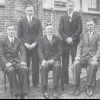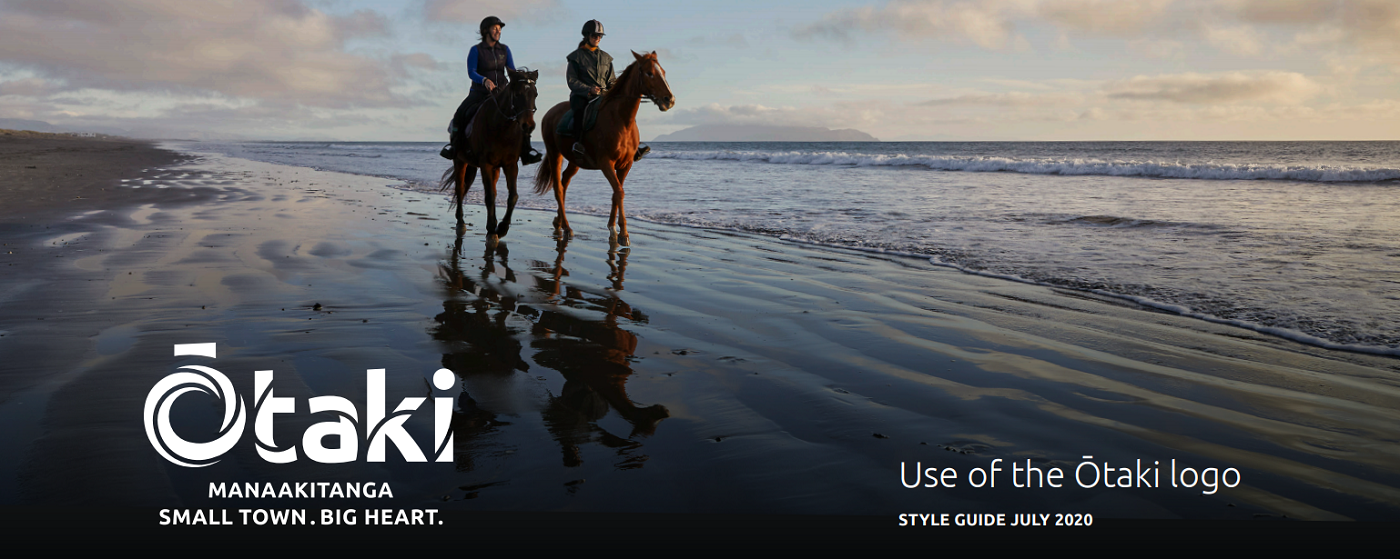
The annual event at Ōtaki College to remember the gallantry of SS Otaki and honour the Merchant Navy was this year focused on the fateful convoy PQ17.
Merchant ships in the Second World War convoy from Scotland to Russia were left to the mercy of German forces after the British Admiralty issued the infamous command: “Convoy is to scatter.” The command came after it was feared the German battleship Tirpitz was about to intercept the convoy.
The intelligence proved wrong and the 35 merchant ships, unprotected by their naval escort, were picked off by U-boats and Luftwaffe bombers. On one day alone – July 12, 1942 – 12 ships were sunk. Only 11 of the total number of merchant ships were to reach Russia. British Prime Minister Winston Churchill later described it as “one of the most melancholy naval episodes in the whole of the war”.

Members of the Russian Convoy Association at the Ōtaki College monument on March 11. From left, George Billing (97, HMS Nabob, Derek Whitwam (96) HMS Berwick and Stan Welch (96) HMS Apollo.
Photo Ian Carson
Many New Zealanders, including my own father, were on the convoys that supplied the Soviet Union with war materiel in its battle against Nazi Germany. The New Zealand Russian Convoy Association, now with dwindling membership, is always represented at the wreath-laying event at the college.
They are normally accompanied by Russian Ambassador Georgy Zuev, who regularly shows deserved gratitude by laying a wreath alongside representatives of Great Britain and Germany. The ambassador was conspicuously absent this year after his country invaded Ukraine.
Three members of the convoy association, though now well into their 90s, did attend, including president Derek Whitwam. Derek was the keynote speaker.
He began his address by saying that in 1942, Russia (then the Soviet Union) was an ally against Nazi aggression, though an extremely demanding one.
Derek was English and later emigrated to New Zealand. He joined the Royal Navy in 1943, when the convoys were in full swing. After initial training he joined the heavy cruiser HMS Berwick and sailed on his first convoy destined for Russia, JW57, in February 1944.
“After ploughng through 60-foot [18-metre] waves we developed machinery trouble and had to withdraw back to Scapa Flow for repairs,” he said. “Meeting 60-foot waves head-on is like driving into a brick wall – very difficult to keep your balance.”
Like most men on the convoys, he remembers the bitter cold as the ships crept through Arctic waters.
“It was very cold, but the only cold-weather clothing we were issued with was two pars of ankle-length woollen underwear. For washing we had to geg, borrow or steal a bucket, which was used for both bathing and clothes washing.”
Derek said it was often so cold the ladders would be covered in ice and waves coming over the bow would turn to ice before reaching the bridge. Ice was a constant worry, not just because of the danger to crew, but also because it could cause machinery to malfunction and upset the equilibrium of the ship.
“We were constantly chipping ice from the guard rails and most other areas on the upper deck. In fact, on one convoy the roof of the crusier HMS Sheffield’s A turret at the front of the ship, was peeled back like the lid on a sardine tin.”
The men on the convoys often trained with or were friends with men on other ships. In some cases they grew up together and joined the Navy together. Convoys by their very nature involved many ships, and it was inevitable that some men would look across the heaving waves to see how their mate was doing only a few hundred metres away.
One story told to me by a veteran was of waving every morning to his friend on another ship. One day after their customary salute, this veteran said he suddenly saw the trail of a U-boat torpedo streaking past his ship. It sped on and slammed into his mate’s ship just below the bridge. The ship exploded and sunk within minutes. His mate died in the attack.
My own father was on PQ13, serving on HMS Trinidad. A new light cruiser with a complement of 900 men, it was heavily damaged in March 1942 when a torpedo malfunctioned – she torpedoed herself. A total of 32 men died, including Aucklander A C Dick.
My dad remembered injured men in the sea gasping for air as oil seeping from the damaged ship floated around them.
Incidents such as these are remembered by those who served, and undoubtedly still haunt them in moments of reflection. It’s why it’s important to honour their service with commemorations such as those at the college.
The gardener who braved the Arctic
Just after midnight on 15 May 1942, Bill Carson, my father, stood on the deck of HMS Trinidad, boots smouldering from the heat of the deck plates as fires raged below. He and hundreds of others from the Royal Navy cruiser were waiting to be rescued by escorting destroyers; the survivors knowing that hatches had to be closed on many of their... Keep Reading
LATEST POSTS
- The doctors and hospitals that shaped Ōtaki
- How out-of-work men cleared Hautere
- Medals to remember Maggie, Harry
- History milling around
- Historic Te Horo kaīnga restored
- Work on old Clifden Cottage under way
- Medals tell a story spanning the world
- Claimants lament loss of Rangiuru Pā
- Medal for Roy after nuclear test service
- Hector, 100, at Sunset Retreat
- From whaler cottages to Airbnbs
- Vault opens door to local history
- D-Day remembered at college commemoration
- Oddities beneath the floorboards
- Tales of a winning cricket team
- History in a humble tomato box
- Uncovered swagger stick tells sad tale
- Restored theatre pianola returns
- Restoration the focus for rotunda Friends
- Convoy PQ17 remembered at college commemoration


